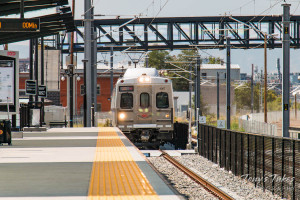(Editor’s note: This is sixth in a series on why most Americans don’t ride transit. The first is here, second is here, third is here, fourth is here, and the fifth is here).
Rather than maintain transit systems in a state of good repair, the transit industry has chosen to build more transit lines that it can’t afford to maintain. Transit riders respond to delays and dilapidated transit by finding other methods of travel.

The Department of Transportation’s latest assessment of the nation’s transit systems found an $89.8 billion maintenance backlog. Moreover, the backlog is growing by $1.6 billion a year, because rather than fix transit systems, transit agencies are building more.
To eliminate the backlog in 20 years, the report calculated, every single dollar now being spent on transit improvements must be transferred to maintenance and preservation. Alternatively, the industry must find at least $5.8 billion in new subsidies each year (see page Roman numeral L in the assessment).
This backlog is definitely hurting transit ridership. American Public Transportation Association ridership reports reveal that 8 percent fewer people rode the Washington Metro rail system in the first half of 2016 than in the same period in 2015. This decline was largely due to people finding other alternatives because the subways have become so unreliable, not to mention unsafe. Although the agency began slowing trains to do trackwork late in the second quarter, the ridership decline began before that time.
Yet, aside from a few conferences during which mid-level agency officials pay lip service to achieving a state of good repair, the tran![]() sit industry is ignoring this problem. Boston’s MBTA, for example, says that it has a $3 billion maintenance backlog and needs to spend $470 million a year just to keep it from growing, yet it is spending just $100 million a year on maintenance. Instead of restoring the system, it is spending well over $2 billion on a 4.3-mile extension of its light-rail line to Medford, Massachusetts.
sit industry is ignoring this problem. Boston’s MBTA, for example, says that it has a $3 billion maintenance backlog and needs to spend $470 million a year just to keep it from growing, yet it is spending just $100 million a year on maintenance. Instead of restoring the system, it is spending well over $2 billion on a 4.3-mile extension of its light-rail line to Medford, Massachusetts.
Similarly, rather than contribute its fair share towards restoring the Washington Metro system, Maryland wants to spend more than $2 billion building the Purple Line light rail. Across the state line, Virginia is doing the same thing: building the Silver Line rather than assist in maintaining the existing system.
Similar problems can be found in Atlanta, Portland, San Francisco, and many other urban areas: rail transit systems declining, yet agencies are putting their resources into building new lines rather than repairing existing ones. Over the past decade, overall transit ridership has fallen in Atlanta, Cleveland, Pittsburgh, Sacramento, and other cities, and deteriorating infrastructure is one of the reasons.
Groups opposed to new highway construction used to have a mantra: “Fix it first.” Groups today that sincerely support public transit should apply that mantra to the transit industry if they want to avoid further ridership declines.
Randal O’Toole directs the Transportation Policy Center at the Independence Institute, a free market think tank in Denver.


